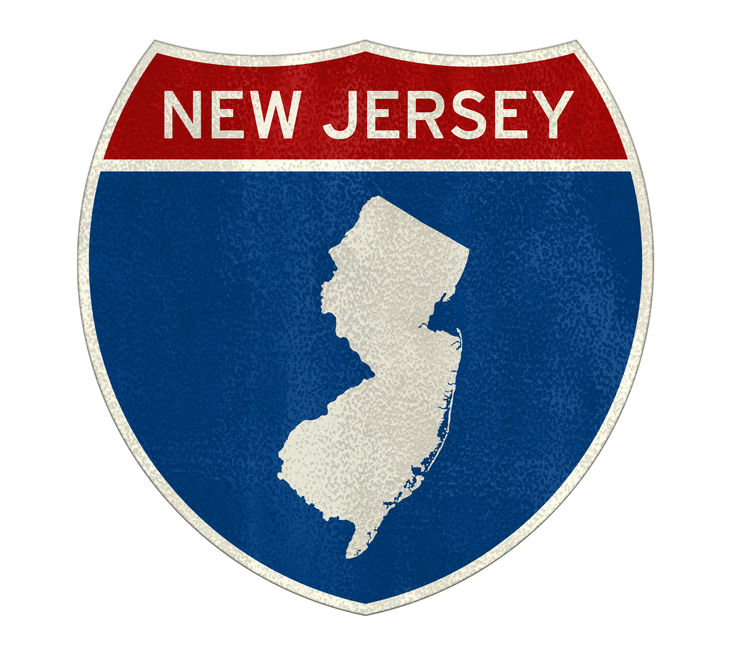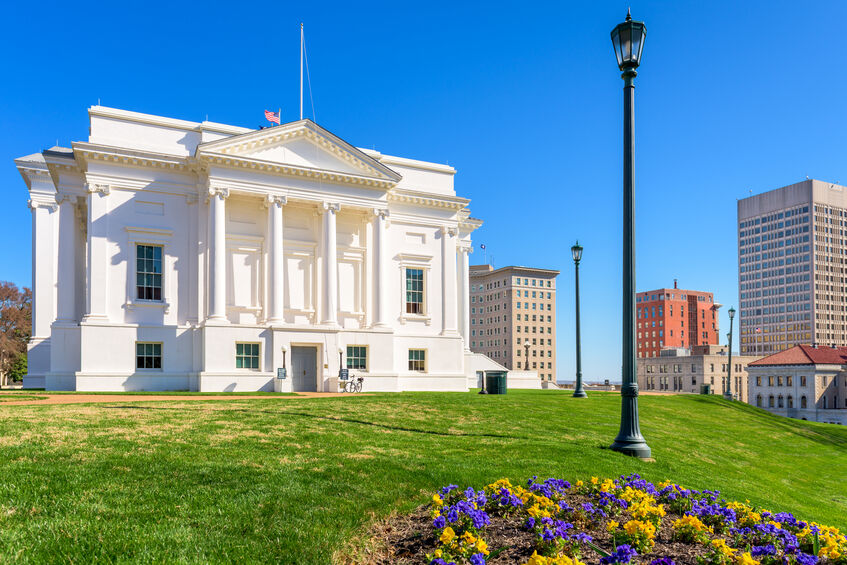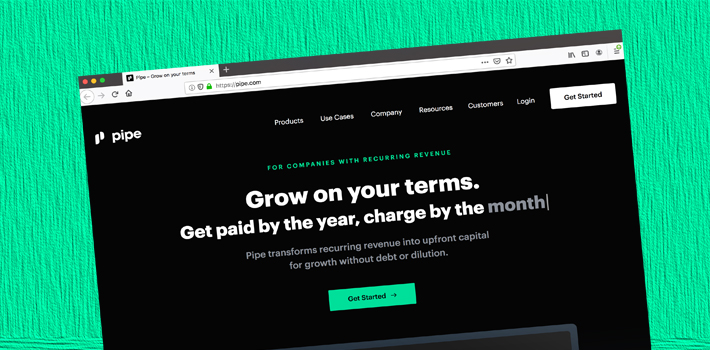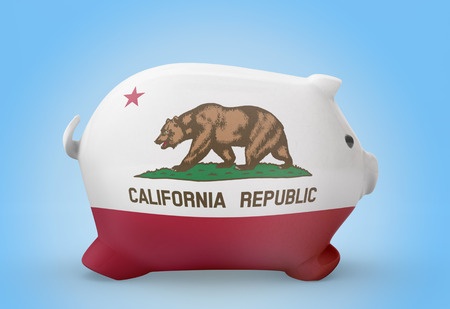Articles by deBanked Staff
Missouri Introduces Commercial Financing Disclosure Bill
January 25, 2022Add Missouri to the list of states proposing mandatory disclosures in commercial financing transactions.
[See: New York, California, New Jersey, Virginia, North Carolina]
Missouri’s SB 963 is different from bills in other states in that it does not seek the disclosure of an annual percentage rate. Adopting a simpler approach, SB 963 would require commercial financing companies to disclose:
1. The total amount of funds provided
2. The total amount of funds disbursed
3. The total amount to be paid
4. The total dollar cost
5. The manner, frequency, and amount of each payment
6. Prepayment costs or discounts
7. Whether or not a broker will be compensated
The bill was introduced by State Senator Justin Brown (R).
New Jersey Reintroduces Commercial Financing APR Disclosure Bill
January 20, 2022 Members of New Jersey’s state legislature are trying for a fifth year in a row to advance a commercial financing APR disclosure bill. Senate Bill 819 was introduced on January 18th. Senate Majority Whip Troy Singleton (D) is the primary sponsor.
Members of New Jersey’s state legislature are trying for a fifth year in a row to advance a commercial financing APR disclosure bill. Senate Bill 819 was introduced on January 18th. Senate Majority Whip Troy Singleton (D) is the primary sponsor.
Similar to what was just introduced in the Virginia legislature, the bill is mainly aimed at “sales-based financing.”
“Sales-based financing means a transaction that is repaid by the recipient to the provider, over time and as a percentage of sales or revenue, in which the payment amount may increase or decrease according to the volume of sales made or revenue received by the recipient. ‘Sales-based financing’ includes a true-up mechanism where the financing is repaid as a fixed payment but provides for a reconciliation process that adjusts the payment to an amount that is a percentage of sales or revenue.”
Dorsey Focuses Tweets on Bitcoin and Anti-Web3 Since Leaving Twitter
January 18, 2022 Jack Dorsey’s departure from Twitter didn’t leave him without a job. He’s still the CEO of Square (now Block), a payments company that is one of the largest small business lenders in the country. Still, all that extra time on his hands must mean he has plans in the works, especially since he believes hyperinflation is right around the corner.
Jack Dorsey’s departure from Twitter didn’t leave him without a job. He’s still the CEO of Square (now Block), a payments company that is one of the largest small business lenders in the country. Still, all that extra time on his hands must mean he has plans in the works, especially since he believes hyperinflation is right around the corner.
If his tweets are any indication, Dorsey is focused mainly on Bitcoin as both an answer to inflation and as a counter to the burgeoning “web3” concept attributed mainly to projects on the ethereum blockchain.
“You don’t own ‘web3.’ The VCs and their LPs do,” Dorsey tweeted on December 20. “It will never escape their incentives. It’s ultimately a centralized entity with a different label. Know what you’re getting into…”
“The VCs are the problem, not the people,” he later added.
His comments rubbed some in Silicon Valley the wrong way.
I’m officially banned from web3 pic.twitter.com/RrEIAuqE6f
— jack⚡️ (@jack) December 22, 2021
Since being “banned by web3,” Dorsey announced that Block is building an Open Bitcoin Mining System to help make mining more distributed and efficient. A tweet thread he shared by Block Hardware Manager Thomas Templeton explained exactly what that means:
“We want to make mining more distributed and efficient in every way, from buying, to set up, to maintenance, to mining. We’re interested because mining goes far beyond creating new bitcoin. We see it as a long-term need for a future that is fully decentralized and permissionless.
We started by digging into two big questions. 1) What are customer pain points today? 2) What are the specific technical challenges? We spoke with members of the mining community to learn more about their experiences. Here’s what we’ve found so far:
1/ Availability. For most people, mining rigs are hard to find. Once you’ve managed to track them down, they’re expensive and delivery can be unpredictable. How can we make it so that anyone, anywhere, can easily purchase a mining rig?
2/ Reliability. Common issues we’ve heard with current systems are around heat dissipation and dust. They also become non-functional almost every day, which requires a time-consuming reboot. We want to build something that just works. What can we simplify to make this a reality?
3/ Performance. Some mining rigs generate unwanted harmonics in the power grid. They’re also very noisy, which makes them too loud for home use. Unsurprisingly, all miners want lower power consumption and higher hashrates. What’s the right balance of performance vs other factors?
Developing products is never a solo journey, and evaluating existing tech is always part of our practice. For this project, we started with evaluating various IP blocks (since we’re open to making a new ASIC), open-source miner firmware, and other system software offerings.
We are interested in performance *and* open-source *and* our own elegant system integration ideas. Which tech and which partners should be on our list to consider? We’ve learned so much just from these preliminary conversations and we want to keep this going.
Team. We’re incubating this investigation within Block’s hardware team and are starting to build out a core engineering team of system, asic, and software designers led by @afshinrezayee. A few of the open roles are Electrical Engineers, Analog Designers, and Layout Engineers.
Thanks for engaging with our work. If you have questions, want to share more feedback about the pain points or missing features of the existing mining solutions, or know someone we should be talking to about our open roles, you can reach us at miningsystem (at) block (dot) xyz”
As for inflation, well Dorsey’s not so shocked that the number continues to tick upwards.
damn Santa didn't take the transitory inflation away https://t.co/P1CFEIQyNV
— jack⚡️ (@jack) January 12, 2022
Virginia Hops on the Commercial Finance APR Disclosure Bandwagon
January 14, 2022 Add Virginia to the list of states introducing initiatives to codify disclosures in commercial finance. Virginia House Bill 1027 is aimed squarely at “sales-based financing providers.”
Add Virginia to the list of states introducing initiatives to codify disclosures in commercial finance. Virginia House Bill 1027 is aimed squarely at “sales-based financing providers.”
The Virginia bill calls for an estimated APR to be disclosed on sales-based financing contracts using methods conceived in New York’s recent legislation.
As has been witnessed, however, New York’s regulators recently discovered weaknesses in their own law.
The Virginia bill is in its very early stages. It was introduced on Wednesday, January 12th by Delegate Kathy K.L. Tran (D).
DailyFunder Surpasses Two Million Page Views Again
January 10, 2022 DailyFunder, the small business finance forum founded in 2012, once again surpassed two million annual page views.
DailyFunder, the small business finance forum founded in 2012, once again surpassed two million annual page views.
“This community draws in hundreds of thousands of visitors each year,” said DailyFunder founder Sean Murray. “We’re very impressed by its continued popularity ten years after it was founded.”
The forum is currently beta testing a new form of native advertising that was automatically extended to existing advertisers. The site continues to be one of the primary drivers of b2b finance traffic for the industry.
“There’s a reason that people keep coming back,” Murray added. “There’s really nothing else like the DF.”
Trial For Brendan Ross in Direct Lending Investments Case Postponed
January 7, 2022The criminal trial of Brendan Ross, the former alternative lending hedge fund operator accused of wire fraud, has been postponed to July 26, 2022. Ross has been out on bond. He has pled not guilty.
And One of the Largest Small Business Funders is… Pipe?
December 22, 2021 It’s not a loan, Pipe says. Instead businesses can sell their future recurring revenue to investors on a trading platform for cash upfront today. Led by CEO Harry Hurst, the former founder of a rental car delivery service, Pipe has provided an astounding $1.2B worth of capital to businesses this year, putting them on pace to become one of the largest small business finance companies nationwide.
It’s not a loan, Pipe says. Instead businesses can sell their future recurring revenue to investors on a trading platform for cash upfront today. Led by CEO Harry Hurst, the former founder of a rental car delivery service, Pipe has provided an astounding $1.2B worth of capital to businesses this year, putting them on pace to become one of the largest small business finance companies nationwide.
The company claims to have made recurring revenue into an asset class while making Miami their home base, much to the joy of the city’s tech-friendly mayor.
I am so grateful for everyone participating and joining forces to make Miami a global hub for innovation.
This is just one of many! @harryhurst @m_cieplinski @pipe
Read more: https://t.co/OtxrRad0yq
— Mayor Francis Suarez (@FrancisSuarez) December 22, 2020
Pipe considers itself to be the “Nasdaq for revenue” and calls its employees “plumbers” instead of sales agents, underwriters, and engineers.
People wonder how big @pipe is.
In our first full year of trading we’ve provided access to over $1.2B in financing to companies of all shapes and sizes, from bootstrappers to public co’s – all on their terms.
Proud of our team of 76 plumbers is an understatement.
Bring on ‘22!
— Harry Hurst (@harryhurst) December 21, 2021
Pipe has already raised $300 million of equity financing in the last year from investors including Shopify, Slack, Okta, HubSpot, Next47, Marc Benioff’s TIME Ventures, Alexis Ohanian’s Seven Seven Six, Chamath Palihapitiya, MaC Ventures, Fin VC, Greenspring Associates, Counterpoint Global (Morgan Stanley) and more at a valuation of over $2 billion.
“Pipe is levelling the playing field for companies in the capital markets,” said Chamath Palihapitiya, Founder & CEO, Social Capital, to finledger. “By taking the underlying contracts that generate recurring revenue streams and making them tradable for the first time, Pipe has unlocked a multi-trillion dollar asset class, revenue.”
Transition to NMLS Extension Postponed to March 15, 2022
December 21, 2021With permission for reprint from Leasing News and credit to Ken Greene
 The California DFPI has extended the deadline for transitioning to the NMLS to March 15, 2022 for all those with a California license.
The California DFPI has extended the deadline for transitioning to the NMLS to March 15, 2022 for all those with a California license.
I had a long talk with the DFPI NMLS specialist and the agency is well aware that the transition process is not simple, and that many companies are having difficulty with it. I was also advised that if an application is pending but not approved when the deadline passes, your license will not be revoked. That is also good news.
This three-month extension should give everyone sufficient time to get the transition done. The process is confusing, but the folks at the DFPI are quite helpful. I urge anyone having difficulty to call them. Still, don’t wait until the last minute!
Here is the announcement:
Extension – NMLS Transition for California Financing Law Licensees: Deadline Extended to March 15, 2022
Notice of Extension
The deadline for licensees under the California Financing Law not currently on NMLS to transition onto NMLS is extended to March 15, 2022.
All licensees not yet on NMLS must establish an account in NMLS and submit their information through NMLS on or before the March 15, 2022 deadline.
Begin by Establishing an Account in NMLS
Licensees seeking to transition onto NMLS may access NMLS’s website here. From this homepage, select the button for “Getting Started – Company.”
To facilitate creating an account in NMLS, all transitioning CFL licensees should be familiar with the documentation required when setting up the account. This NMLS Account Creation Help Document describes step-by-step how to create an NMLS account and the documents needed.
Input Licensee Information
After establishing an account, a licensee must input its information on two electronic forms (three electronic forms if the licensee has branch locations). Information about the licensee is entered on the “Company Form,” MU1. Information about each key personnel (owners, officers, directors, managing members, partners, etc.) is entered on the “Individual Form,” MU2. Information about branch locations/licenses is entered on the “Branch Form,” MU3. After completing the applicable information, submit the information through NMLS.
NMLS has state-specific checklists to assist licensees transitioning onto NMLS, and FAQs for guidance on transitioning a license onto NMLS.
Questions
For questions regarding the creation of an account in NMLS, contact the NMLS Call Center at (855) 665-7123. For questions regarding transitioning a CFL license onto NMLS, contact DFPI at CFL.Inquiries@dfpi.ca.gov or (866) 275-2677.
Finally, for those of you who missed it, here is a link to my Leasing News article from 12/8/21 outlining the CFL to NMLS transition process:
https://leasingnews.org/archives/Nov2021/11_15.htm#cfl
Ken Greene Leasing & Finance Observations
https://leasingnews.org/Pages/greene_observations.html
Ken Greene
Tel: 818.575.9095
Fax: 805.435.7464
ken@kengreenelaw.com
Alternate: kengreenelaw@outlook.com






























